
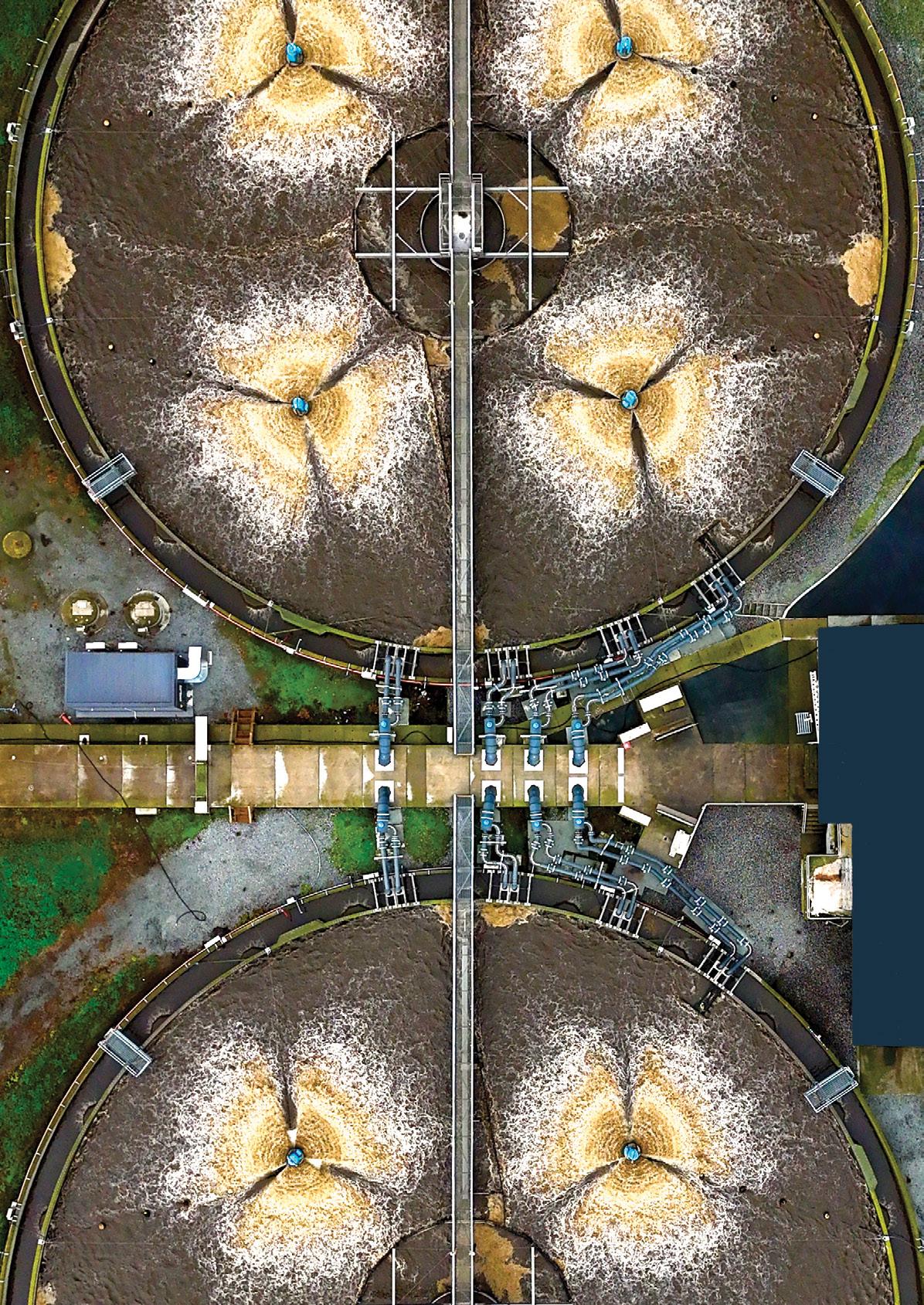



Ka ora te wai
Ka ora te whenua
Ka ora ngā tāngata
If the water is healthy, the land is healthy, the people are healthy
We connect people across the water sector through events, networking opportunities, and knowledge sharing to foster collaboration and advance the sector.
We are passionate about protecting the mauri of the water and promoting sustainable water management practices that will benefit our environment and communities, and support efforts to mitigate the impacts of climate change.
We provide accessible and impactful training and professional development opportunities for all water professionals.
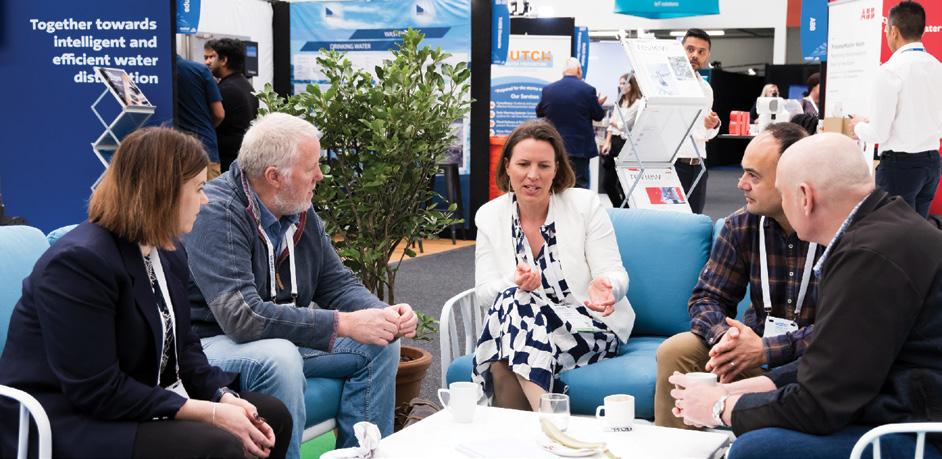
together to discuss latest thinking and new ideas in sustainable management.
‘Ko te wai te ora o ngā mea katoa.’ ‘Water is the life source of all things’
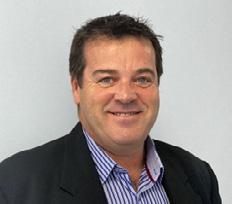
This year, probably more than ever, has reinforced the need for us to remain firmly future focused.
As you read through this review, I’m sure you’ll agree that Gillian, the Water New Zealand team, and our members have all played a critical role in responding to the many challenges and opportunities shaping the future of our water environment.
Not surprisingly, a major focus for us this year has been the ongoing water reforms – arguably a once-ina-generation opportunity to establish a framework to support a sustainable, resilient water sector. The urgency is clear. Many councils and utilities are already facing significant difficulty in delivering the level of service their communities rightly expect. That’s why continuing on the same path is not an option.
We know this has been a challenging year, not just for our members in councils, but also for consultants, contractors and many other downstream industries.
The ongoing uncertainty made for a particularly difficult business environment. During the year we undertook two pulse surveys which helped to confirm what our members had been telling us – that business conditions were subdued and confidence remained largely pessimistic.
I’m certainly optimistic that once the reforms are embedded and new organisations are established, that growing confidence and activity will return to the sector.
This year we refreshed and updated our strategic pillars to better reflect our long term vision for the transformation towards a more sustainable water future for Aotearoa New Zealand.
Towards 2050: Transformation vision was shaped through extensive workshops and dialogue across the motu where we explored what our future might look like and, importantly, how we might get there.
Throughout the report you will see our Transformation 2050 approach reflected across all our pillars and our work. For a snapshot view, take a look at our vision document on pages 20-21 and the table on pages 22 and 23.
We want to ensure that the Local Water Done Well reforms will set the framework for long term certainty and sustainability.
Good governance will be critical. Strengthening knowledge and leadership capability across councils and water service providers has been a priority. That’s why we’ve partnered with others to help build knowledge and ensure that councils and boards will be well-equipped to lead effectively.
One of the most visible challenges this year came with the unexpected change of venue for the upcoming 10th IWA – ASPIRE Conference and Water New Zealand Conference & Expo. Due to ongoing delays at the New Zealand International Convention Centre in Tāmaki Makaurau Auckland, the decision was made to move the event to Ōtautahi Christchurch. I want to express my sincere thanks to Gillian, the Water New Zealand team, and Avenues Event Management for their outstanding work in managing this complex transition at short notice. I’m confident the conference will be a great success – and one we can all be proud of.
Finally, I’d like to sincerely thank all our members for your ongoing support and commitment throughout the year. I’d also like to extend my appreciation to my fellow board officers for their guidance and contributions.
This year, we farewelled board officers Shelley Wharton, Fraser Clark and Troy Brockbank. I’d like to thank them for their valuable contribution. We welcomed new board officers Soltice Morrison, Paddy McNamara and Suzanne Naylor.
We’ll shortly be farewelling former President Lorraine Kendrick who is stepping down by rotation. Again, I thank Lorraine for her significant contribution to Water New Zealand and wish her all the best for the future.
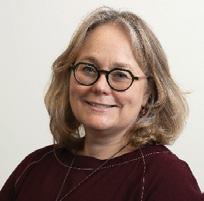
As I look back on the past year, it’s clear that this has been one of the most significant and demanding periods our sector has faced.
The pace of reform and regulation has been relentless, and much of our work has focused on representing your voice – through submissions, dialogue with government, and engagement with regulatory agencies.
Ensuring the voice of the water community is heard remains a top priority. Throughout the year, we’ve worked hard to strengthen trusted relationships and forge new strategic alliances with key partners across government, infrastructure, and the wider water sector.
Collaboration, trust, and strong working relationships are essential if we are to successfully transition toward a sustainable water future.
This progress would not be possible without the ongoing support and commitment of our members. Together, we form a resilient and forward-looking water community. Your expertise and leadership –whether through special interest groups, technical documents, webinars, submissions, workshops, or conferences – are at the heart of our collective impact.
In line with our strategic direction, we launched three new Special Interest Groups this year: Diversity, Equity and Inclusion, Te Ama | Aukaha te Wai, and Wastewater. These groups reflect our commitment to building a sector that is inclusive, representative, and capable of delivering for all communities.
Our workforce development pillar continues to gain momentum. In partnership with education providers and industry training organisations, we’ve delivered new courses and launched a video series that highlights the broad and exciting career opportunities across the sector.
We know that this year has been challenging from a business perspective. Our pulse business surveys found that the subdued confidence led to some sector retrenchment and fewer opportunities for new entrants during the year
The surveys also highlighted a need for enhanced training, development opportunities, and improved international recruitment to build workforce capability.
However, looking ahead, a capable and skilled workforce will be essential to delivering a long-term, sustainable water future. That’s why we continue to advocate for nationally recognised qualifications to help ensure we’re developing a future-fit workforce with the right skills, in the right places, for the right roles.
We need to continue to integrate mātauranga Māori knowledge into water services practices and, as an organisation, this has been a focus across all our strategic pillars.
I’ve been heartened by the level of support for our te ao Māori strategy and the visibility of mātauranga Māori, particularly though our conferences.
The “once in a generation” reform programme and Local Water Done Well has been keeping our technical team busy. We want to ensure that the new legislation and regulatory environment will set the water sector up for a long term affordable and sustainable future.
We know we’re facing a lot of complex challenges – infrastructure affordability, climate change, water quality, workforce skills and, of course, the new governance environment.
Our new strategy, with its focus on the sustainability and wellbeing of our water environment through to 2050, will help guide us through the years ahead.
At the heart of all these challenges is our goal of safeguarding the health and sustainability of our water environment.
Thank you for being with us on this important journey.
Water New Zealand Conference and Expo 2024
1,700 delegates and exhibitors and 900 for gala dinner
Membership
3,448 UP 5%
2,661 members belong to special interest groups
Technical guides
Eight new guides completed

LinkedIn followers
13,730 UP 18 %
Water Directory
213 companies listed
Water Journal
More than 2,300 printed copies, 2,840 online reads
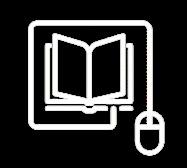
Pipeline
More than 11,300 recipients with 29% opening rate
Stormwater Conference and Expo 2025
More than 500 delegates and 50 expo stands
Nine Digital Badges plus two pins
467 learners enrolled
Cultural Significance and Te Mana o te Wai courses
120 enrollments
17 legislative submissions
44 in person events
48 online events and podcasts
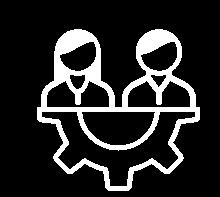

Lifting sector capability and capacity
A “seat at the table”as the provider of trusted apolitical technical advice
Healthy water is our “why”
The must-attend events programme
The water community you want to be a part of

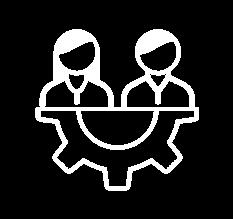
Our water workforce strategy is focused on building capacity and capability by making the sector more visible and promoting water careers.
Over the past year, we have rolled out a modern learning management system, expanded our Digital Badge offerings, and introduced new training initiatives – including school outreach, sector career videos, and our inaugural scholarship programme. Through targeted resources, in-school and university activities, and engaging career materials, we’re raising awareness of water as a rewarding career path and strengthening professional development for new entrants and the current workforce.
We continue to upskill sector professionals with flexible, industry-aligned Digital Badge training that supports lifelong learning and evolving competency. These accessible credentials foster continuous development and respond to sector demands for adaptable, skilled staff.
As vocational training undergoes major reforms, we are collaborating with key organisations to create an environment that supports workplace learning. We have driven the establishment of an industry skills board for infrastructure (which includes water) and have supported updates to NZQA qualifications in wastewater and drinking water, ensuring alignment with future sector needs.
We also recognise the importance of strong governance and worked towards helping ensure that councils and boards will understand the requirements needed to lead effectively following the government’s reforms.
Our Digital Badges have been a cornerstone of Water New Zealand’s online learning strategy for several years. This year we refreshed and revised our key ones to ensure that they remain fit for purpose and accurately show achievement and competency.
We also continued to add to our suite of digital learning opportunities with a new Emerging Contaminants Pin, which opened for registration in May 2025.
I have done the Digital Pin on Contaminants of Emerging Concern …it is really good. It is smart and easy to do; it is well presented. It has a little test quiz at the end, and it is a good way to get some key messages across – Andy Gaul, water industry training advisor, Connexis
Our recently developed School Water Supplies Digital Badge is scheduled to be rolled out in the second half of 2025 to rural schools nationwide.
The course is designed for schools that manage their own water supply. A contract with the Ministry of Education means all 425 schools with self-supplied drinking water will have access to the School Water Supplies Digital Badge.


During the year, we met our goal of providing three Cultural Significance and Importance of Wai courses, completed by 54 attendees.
It is now being refreshed to keep it relevant to the sector, meeting members’ needs with a more advanced module.
We had 66 enrolments for our free Te Mana o te Wai course, which introduces the basic principles of Te Mana o te Wai for the water sector.

We developed new courses and learning opportunities aimed specifically at local authority councillors and those standing as well as working in partnership with Ngāi Tahu to support safe drinking water for marae. See more under Relationships
We updated our learning platform, Docebo, to improve user experience. This revised platform offers:
• Improved customer responsiveness and learning experience.
• Reduced administration costs and improved reporting.
• Increased ability to offer bulk buys and subscriptions with tailored packages available for companies.
We need to be visible and ensure that water is seen as a viable career option. This year, with financial support from the Infrastructure Education & Training Charitable Trust, we produced 14 videos that showcase opportunities in the sector. Aimed at schools as well as learners of all ages, the videos will be available across the country with three featured on the new Tahatū website. They will be promoted at careers fairs across Aotearoa New Zealand.
We received extra grant funding that will enable subtitled versions in Te Reo Māori, Samoan and Tongan.
We have developed a new landing page for learners and job seekers showcasing the career videos and apprenticeship and job opportunities.
We have also developed and released:
• Project Management for the Water Sector (free course).
• Presenting Skills, a partner course to Writing an Abstract to support conference attendees with their presentations.
• Mentoring, to support our revitalised mentoring programme. Free training is available for mentors and mentees to help them get the most out of the programme.
• Working with Schools and Communities, part of our new tool kit for members to help them work with local schools and community groups to promote the sector.
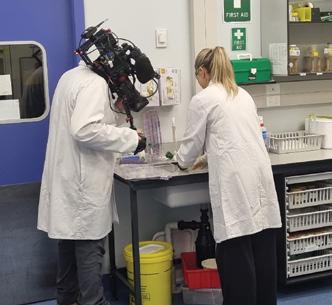
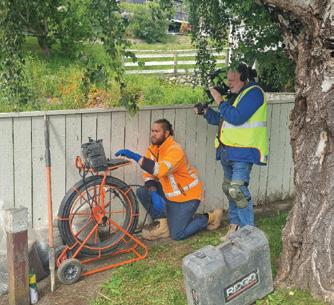
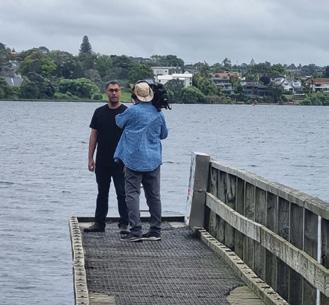
We updated the information video and included new downloadable documents. We also provided guides on drinking water, wastewater and stormwater to teachers to support in-class learning.
Working with partners, we have extended our reach across schools though House of Science, the Wonder Project, and Inspiring the Future. Collectively, these are aimed at fostering science literacy, engagement, and career aspirations among young New Zealanders.
Through our funding, we have enabled House of Science to deliver bilingual water investigation kits. The kit was booked 211 times, used by 633 teachers and 17,091 students. These hands-on kits break down barriers, supporting both students and teachers, boosting science engagement, teacher confidence, and STEM learning outcomes. Teachers consistently report that students are “highly motivated and look forward to each lesson”.
“Wai water kit was fantastic! Juniors loved the ice water and dye. Great these bottles are made up and ready to use.
Drawing around puddles with chalk was fun and again very easy for the children to grasp the concept. Doing the water cycle in the plastic bags and drawing the water cycle with marker pens, hanging them in the windows was such an amazing tool and the children very quickly grasped the concept. With classroom rooms with hot water, I used hot, sped up the process visually and children made links to bathrooms, etc. Excellent kit for years 1-6!” – Eskdale School, Hawke’s Bay
The Wonder Project inspires students with dynamic, real-world STEM challenges, including the just released Water Challenge. Managed by Engineering NZ, the programme provides free kits, guidance from industry ambassadors, and bilingual resources. In 2024, the Wonder Project programme reached over 24,000 students in 845 classes, including a high proportion of Māori and Pacific learners. It has a strong impact: 96% of teachers report increased confidence teaching STEM, and 56–58% of students are more interested in STEM careers after participating.
“Inspiring the Future” connects young people with water sector professionals and beyond. We support the organisation by promoting its programmes, working with schools to encourage session uptake and hosting sessions in schools and at career fairs.
Kirikiriroa Hamilton-based Berkley Normal Middle School won the Water New Zealand inaugural Imagining High Tech Water Cities writing prize. The talented young writers who were asked to imagine a world where wastewater is recycled, streams have been restored and technology helps nature heal, earned an all-day Design Jam session with acclaimed author and visionary Steve Mushin. The competition was held to coincide with the Water New Zealand Conference & Expo 2024.
Other school projects included:
• Sponsorship of Māori Science and Design Fair Te Tūkohu Ngāwhā Mātauranga where prizes were awarded to four excellent school projects and the teacher award went to Geraldine Cunningham at Rotorua Girls’ High School. The prize winnings were used to buy supplies to test local waterways, and Water New Zealand’s technical lead for education, Belinda Cridge, held a session on nitrates.
• In August 2024, Belinda led a week-long series of sessions on stormwater at Porirua’s Aotea College for 300 year 10 students supported by representatives from local industry who came and talked about their work.
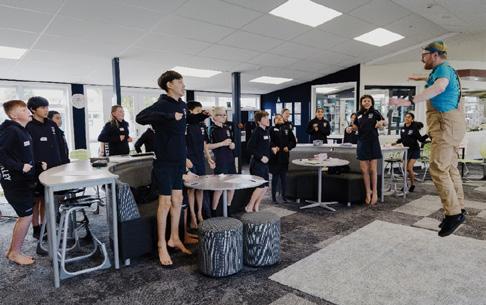
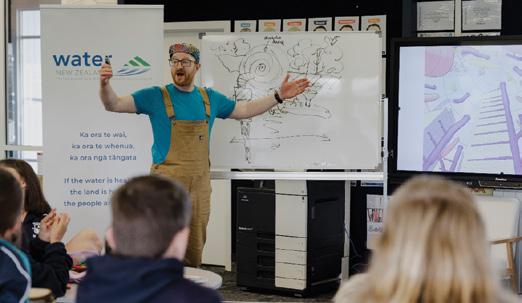
• We contributed to a working group aiming to develop a course in advanced environmental engineering as a pilot for a master’s degree in drinking and wastewater treatment.
• Continued participation in the Auckland University Public Health Intensive Course on Food and Waterborne Disease.
Mentoring – to provide more support for younger members we reactivated our mentoring programme giving them opportunities to connect with more experienced members. Thirteen mentees enrolled after it was relaunched at the beginning of July.
Upskilling the workforce is critical to our long-term success. Vocational training – online and on-the-job – is essential to ensure a steady pipeline of suitably qualified people. This year, we collaborated with Civil Contractors New Zealand, the Electrical Engineers Association, and Electricity Networks Aotearoa, and worked with Connexis to provide input on proposed changes to Te Pūkenga and the Workforce Development Councils.
We worked with Civil Contractors New Zealand to ensure that appropriate career options in water were included in its roadmap for working in civil infrastructure construction.
The roadmap features a wide range of roles, and connects through to training, qualifications and employment opportunities

Water New Zealand CEO Gillian Blythe highlighted the importance of workforce capacity when she met Vocational Education Minister Penny Simmonds. She reiterated the message when she and President Tim Gibson met Local Government Minister Simon Watts.
Water New Zealand is strongly advocating for accelerating the introduction of the authorisation framework, giving the right skills to those working on the tools, bringing its implementation forward to 2028 rather than the proposed 2031 under the Local Government (Water Services) Bill.
Workshops and webinars – see more under advice and advocacy.
A “seat at the table” as a provider of trusted apolitical technical advice
Being a trusted advisor to the sector and facilitating collaborative engagement with ministries and regulatory agencies continued to underpin our work around advice and advocacy.
Providing support, advice and information to members as they processed the government’s overhaul of water service provisions was front and centre this year. A key focus has been providing high-quality, evidence-based submissions on bills, regulations and standards.
A lot of time and expertise from members and Nicci Wood, technical lead regulatory and catchments, was spent delving into the details of the government’s massive Local Government (Water Services) Bill (Bill 3), the key legislation that will underpin what water services delivery will look like in the future.
Work on technical documents and best practice guidelines was a core focus for Lesley Smith, technical lead projects and sustainability, along with the needs identified by our Special Interest Groups (SIGs) and Water Services Managers’ Group.
Through our submissions on legislation, webinars, regional meetings, workshops and conferences, and support for our special interest groups, we ensured that members had access to information and the opportunity to have their voices heard.
Support for the Local Water Done Well reforms across development of legislative and regulatory frameworks, implementation and delivery phases, was a key focus for the year. We submitted on a range of Local Water Done Well legislation and regulation and provided technical advice to central and local government.
Keeping our members up to date and ensuring opportunities for the voice of the sector to be heard by key stakeholders was achieved through submissions, meetings, webinars and conferences.
Many members within local councils have been focused this year on developing Water Services Delivery Plans. We have provided support for collaborative opportunities to ensure affordable, safe, reliable, and environmentally responsible water services.
This outlines the roles and responsibilities of different people and what data they need to collect and share to help those involved in drinking water sampling in laboratory tests. The guidelines were produced by the Smart Water Infrastructure Group with the goal of uplifting the quality of drinking water quality data.
Produced by the Climate Change Group, this guide outlines considerations for wastewater service providers wanting to move beyond default emission factors to assess and manage their wastewater process emissions. It also provides insights into the current understanding of the generation of wastewater process emissions, and what can be done to reduce them.
This document aims to help the water sector address climate adaptation challenges, providing examples of effective local and global solutions. It focuses on filling knowledge gaps identified by Water New Zealand members, and features case studies that highlight successful climate adaptation solutions.
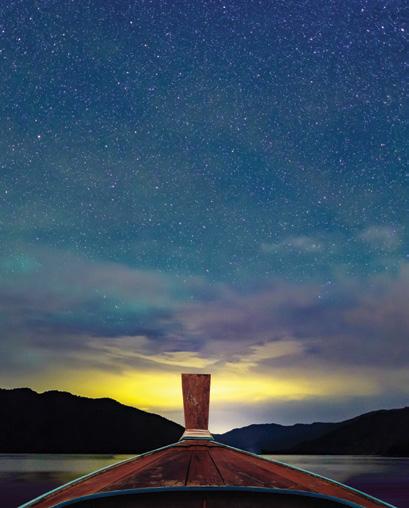
This research investigates the relationship between pressure and burst rates in water distribution systems. Delivered by the University of Auckland, using funding provided by the Building Innovation Partnership, the research aims to plug core gaps identified in the New Zealand Pressure Pipe Inspection Manual.
It demonstrates that pressure management effectively reduces pipe bursts, offering benefits such as lower water loss, extended pipe life, and reduced repair costs. The findings highlight a two-stage impact: an immediate significant reduction in bursts, followed by a moderate increase over time as pipes age.
Recommendations include adopting long-term strategies for pressure management, including periodic reassessment of the effect of pressure management on pipe failure rates.
A resource for water utility managers, engineers, asset managers, and field operators involved in the maintenance and renewal of pressure pipes. It includes:
• Planning for the inspection of pressure pipelines
• Selection of inspection methods
• Condition and performance grading


This guide provides the requirements and supporting rationale for appropriate risk management to unlock the benefits of applying biosolids to land, including carbon sequestration, fertilising, and soil conditioning properties.
Developed by the Climate Change Group, this guide is designed to support councils as they prepare their Water Services Delivery Plans (WSDPs), ensuring that climate change risks are considered and factored into long-term financial planning. By doing so, councils can better understand the true financial impacts of climate change as part of their sustainability planning.
The guide also provides a useful reference for regulators and auditors, helping them assess how well providers are addressing the financial and service delivery risks associated with a changing climate.
Targeted at water service staff, climate and sustainability officers, and financial managers, the guide is complemented by a webinar we hosted to answer common questions and offer further guidance.
• Estimations of remaining service life
• Specification of inspection clauses
The manual has been developed by ProjectMax and the Water Resource Council, with funding and support from Water New Zealand Water Services Managers Group and the Building Innovation Partnership.

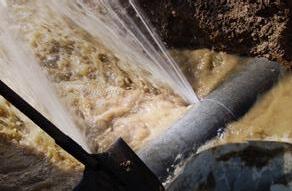
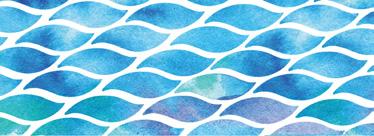
– advancing our journey to net zero –(February 2025)
Developed by the Climate Change Group, this document provides guidance on understanding and reducing embodied carbon in the water sector of Aotearoa New Zealand, with an overview of key concepts and steps to reduce embodied emissions within projects.
A supporting poster provides information on typical embodied emissions for key construction materials and further information to support emissions considerations in water infrastructure design.
Adopting standardised asset data will support better, consistent tools and processes for decision-making; easier and more robust reporting, and significant reductions in costs across the supply chain. These standards, designed for councils to use as a basis for implementing their water asset management systems to enable comparisons across different networks, were first developed by the government’s National Transition Unit (NTU) and made available for use via a Creative Commons licence. These were further developed by Wellington Water, which converted original standards into a machine-readable format and implemented several updates that had not been finalised by the NTU. The Smart Water Infrastructure Working Group has been socialising the standards for broader adoption.
The standards have been republished on the Water New Zealand website, and two working groups have been set up to support their implementation. The Asset Data Standards Governance Group is concentrating on the stability and ongoing integrity of the standards. The second group is looking at pathways to encourage their adoption.
Developed by the Smart Water Infrastructure Group, this guide explores three tiers of water metering, each suited to different stages of water utilities’ metering development. The tiers, ranging from basic monitoring to full smart network integration, provide valuable insights into current capabilities, challenges, and potential pathways for utilities to improve water management and meet future needs.
We have been working with an independent research agency to develop clear guidance on the sector’s research priorities and funding needs.
The plan is due for launch in September.
August 2024 – Making it easier to build granny flats consultation
August 2024 – New Zealand’s Second Emissions Reduction Plan
December 2024 – Developing an enduring National Infrastructure Plan
December 2024 – Water Services Authority – Taumata Arowai levy for 2025-2028
December 2024 – Commerce Commission levy for the economic regulation of water services
December 2024 – Principles of the Treaty of Waitangi Bill
January 2024 – Resource Management (Consenting and Other System Changes) Amendment Bill
February 2025 – Local Government (Water Services) Bill
March 2025 – Options for future work-based learning
May 2025 – Proposed wastewater environmental performance standards
May 2025 – NEMA future emergency management discussion
May 2025 – Economic Regulation of Water Services –Information Disclosure, Discussion Paper
May 2025 – MfE Waste legislation amendments
June 2025 – Public Works (critical infrastructure) Bill
June 2025 – Water Services Authority – Taumata Arowai Acceptable Solutions
June 2025 – Building & Construction (Small Stand-alone Dwellings) Amendment Bill
Letters
20 May 2025 – Letter to Minister Simmonds on ISB structure
Gillian and Nicci spoke in support of several of our submissions at select committee hearings.
Our Special Interest Groups (SIGs) bring together members with the same interests to liaise, share and solve problems, promote their fields of interest, distribute information, encourage discussion and develop and maintain industry standards and policies.
Three new SIGs were launched this year – Diversity, Equity and Inclusion, Te Ama | Aukaha, and Wastewater – bringing the number to 12.

The Backflow Group is the pre-eminent collective of knowledge on backflow in Aotearoa New Zealand, representing manufacturers, plumbers, training providers, water suppliers, and building compliance officials. Our mission is to advocate industry best practice through education, conferences and forums, standards, legislation, and guidelines.
One of our key publications is the Boundary Backflow Prevention for Drinking Water Supplies Code of Practice. This provides best practice guidance on minimising the risk of backflow through the development of policies and practices covering the selection, installation and monitoring of backflow devices for all connections supplied with drinking water, including residential properties. This year we began updating the Code to align it with the new regulatory environment and expect to launch this later in 2025.
We have also engaged with the Water Services Authority – Taumata Arowai on guidance for backflow prevention for small suppliers as part of a review of acceptable solutions. Small suppliers have been a focus for much of our advice this year.
We’ve kept a watching brief on development of standards. Committee member Richard Aitken is on the steering committee for WS-023 (the AS/NZS 2845 series of Backflow Standards). We have been exploring the possibility of a new standard, 2845.4, to provide better guidance for backflow protection within integrated equipment such as bidet seats and chemical dispensers.
Our conference subcommittee has been working towards the Backflow Group’s bi-annual Drinking Water Protection Conference, being held in Ōtautahi Christchurch in August 2025, with the theme of Protecting the nation’s health: keeping our water safe.
Committee members; Brian Brown, Richard Aitken, Kevin Healy, Jon Lewis, Wayne Sheilds, Steve Harwood, Glen Burr, Hugh Chapman, Erica Hobbs, Andrew Booth, Michael Hartstonge, Sam Woods, Nick Fleckney.
Our mission is to provide leadership across the New Zealand water sector to enable it to act to limit warming. We actively work across all three waters to provide guidance to meet ‘zero carbon’ goals and adapt to the impacts and risks of a changing climate.
Our work is organised across five dedicated sub-groups. It has been an active year, with several publications and events delivered.
This sub-group has focused on the direct process emissions from our wastewater treatment plants – primarily methane and nitrous oxide generated by wastewater processes. Here and around the world there is little known about these potent greenhouse gas emissions. To this end, in September last year our group issued Measuring and Managing Process Emissions, with the aim of encouraging and supporting wastewater operations to begin the sometimes daunting task of direct measurement.
Our communities face ever-increasing pressure from climate change impacts. The infrastructure that we plan, design, construct, operate, and maintain has a significant role to play in protecting our communities. The water sector, in particular, has an important role to play.
Clean drinking water, sewage conveyance and treatment, and catchment management, are lifeline services for communities and need to be either unaffected by disaster or be back up and running quickly to avoid disease and other threats to life.
In September 2024 we released Navigating Climate Challenges – Case Studies in Water Sector Adaptation, showcasing real-world responses to climate risks, providing examples of effective local and global solutions. It focuses on filling knowledge gaps identified by Water New Zealand members, and features case studies that highlight successful climate adaptation solutions.
Embodied carbon is the emissions from the products, transport and maintenance that form the building of infrastructure across the asset life cycle – commonly called the carbon footprint. This year saw the release of Understanding Embodied Carbon in the Water Sector, a key guidance document aimed at building awareness of carbon embedded in infrastructure and procurement decisions. A series of webinars and events have supported this work, with a focus on promoting good practice, sharing case studies, and encouraging consistent data use aligned with international standards such as PAS 2080. Achieving embodied carbon reductions requires collaboration across the whole supply chain, so this has been a focus of this year’s work, including it being a core theme of our conference workshop.
Policy and advocacy
We have provided input on integrating climate mitigation and adaptation legislative submissions, including the government’s Local Water Done Well programme.
Knowledge sharing
Our knowledge-sharing efforts have continued to grow, with much of our focus this year being on communicating the learnings from the workstreams of our other groups via webinars and also a series of in-person events to showcase stories related to embodied carbon. We’ve also contributed articles to the Water journal and Tāwara o te Wai podcast, supported our members to present at conferences, and connected with related networks.
Committee members; Evan Vaughters, Jackson MacFarlane, Nick Dempsey, Catherine Taiapa, Chris Cameron, Matthew Findlay, Punya Chandi, Matt Findlay, Jonathan Reed, Hayden Porter, Jane Hannock, Simon Bradshaw, Nathan Wilson, Dr Saleem Akhter, Song Li, Brandon Harkness, Craig Campbell.
“Whiria te tangata” Weave the people together
WATER NEW ZEALAND
We aim to foster an inclusive environment where diverse voices and perspectives are welcomed and actively integrated to drive meaningful outcomes for the water sector. The first year of this new SIG has focussed on gathering information and engaging with Water New Zealand membership to understand current DEI experiences, including:
• Water Service Managers Group – Deborah Lind gave a presentation and feedback was provided to ensure all diversity experiences were heard. For instance, adapting training of water operators to ensure inclusivity for all and improving gender diversity in leadership roles.
• Special Interest Groups – We are working together to understand the role DEI plays and where there are opportunties to collaborate on initiatives. Our leads have met with the Climate Change, WeCan, YWPs and Smart Water groups as well as the Water Industry Operations Group (WIOG).
Surveys – Uki Dele and James Ross developed a survey to understand Water New Zealand members’ experiences. It was trialled and refined with SIGs and shared on LinkedIn as well as launched at Stormwater 2025 where we held an interactive workshop. A series of recommendations will be refined to target early initiatives for roll-out. Other data gathering and follow up surveys are under way to present a “current state” of the sector. The findings will be presented at the 10th IWA – ASPIRE Conference and Water New Zealand Conference & Expo in Oct 2025.
Ozwater 2025 – Deborah Lind and Kate Simmonds attended, and a range of DEI papers and panels were presented including showcasing neurodiversity roles in water utilties and LGBTQIA+ programmes. Ideas will be taken forward for future Water New Zealand conferences and events.
Committee members; Deborah Lind, Emma Brand, Uki Dele, Kate Simmonds, Arash Farjood, James Ross, Bidara Pathirage, Anisha Sharma, Teresa Wooding, Nicki O’Sullivan, Mazijing Zhong, Imran Khan, Manjit Devgun.
Chair: Judy Williamson
Our group aims to advance drinking water quality practice and outcomes in Aotearoa New Zealand through collaboration and to become a go-to group for water suppliers to seek advice, learn from each other, and international counterparts, and especially to support smaller suppliers.
This year, we did a nationwide survey on source water protection. The responses reflected a wide range of expertise and resources, from well-resourced councils to individuals and teams working with limited capacity. While most respondents had been involved – directly or indirectly – in the preparation of Source Water Risk Management Plans (SWRMPs), more than half reported feeling under-equipped or lacking adequate guidance to confidently define source water management areas or complete SWRMPs. Many expressed a desire for a nationally consistent approach to mapping these areas.
Common concerns were the impact of land use on water quality, and respondents highlighted a need for better integration of Te Mana o te Wai and mātauranga Māori in source water protection planning.
At the Water New Zealand Conference & Expo, the group led two well-attended workshops. One focused on the survey findings, reinforcing the need for better guidance, improved stakeholder communication – particularly with regional councils – and more pragmatic approaches to catchment management. There was strong support for ensuring that SWRMPs are not just compliance documents, but useful, working tools. Participants emphasised the importance of clear advice on how to define catchment characteristics and how to use source water data to support decision-making.
A concurrent session focused on the development of a code of practice for incident response and risk management. Participants identified a need for more support on responding to a range of events, including turbidity spikes, chemical incidents, cyanobacteria outbreaks, and critical control point transgressions. There was also interest in templates for documenting investigations, guidance on co-ordinated incident management, and advice on monitoring practices that go beyond the regulatory minimum. The management of system risks, such as loss of pressure or leak detection, and how to respond to public complaints or threats such as vandalism, were also discussed
Other work:
• Brent Gilpin from ESR presented to the group’s May meeting on the virus research he is doing for the Water Services Authority – Taumata Arowai, jointly funded by Christchurch City Council and Environment Canterbury (ECan). This work will support understanding of adequate disinfection requirements to protect against viruses.
• We supported the webinar presentation “Research into New Zealand’s Waterborne Illness Outbreaks” by Rachel Teen from Canterbury University.
Work has begun on preparing a workshop for the10th IWA – ASPIRE Conference and Water New Zealand Conference & Expo 2025 on Effective Drinking Water Sampling and Data Management, led by Louise Weaver (ESR).
Committee members; Judy Williamson, Tatiana Derevianko, Silvia Vlad, Hallam Bailey, Helen Rutter, Matt Dodson, Maria Johnson, Heather Uwins-England, Louise Weaver, Craig Radford, Neil Leat, Gill Bullock, Michelle Earsman, Renee Wiersma, Blake McGregor, Christopher Bergin, Deborah Prus-Loughlin, Kathryn Jessamine, Matt Parkinson.
Our group is co-ordinated by an enthusiastic management committee that meets regularly to discuss promotion and support of industry best practice in water modelling through education, events, and guidelines.
We facilitate events to provide education, knowledge sharing and networking opportunities. Our premier event is an annual modelling symposium, which was a resounding success this year.
Nearly 100 industry professionals, researchers and practitioners met over two days in Kirikirioa Hamilton to discuss the latest advancements and challenges in water modelling. See more under Events.
Other achievements include:
• A scoping review of the Wastewater Modelling Guide.
• Regular and well supported regional events (Waikato, Auckland, Wellington) and a joint event in Bay of Plenty with Backflow.
• Quarterly newsletters to wider modelling interest groups.
Work has started on an update of the Wastewater Modelling Guide. We’re also working towards information sharing and regional networking events in Auckland, Tauranga, Wellington, Hamilton. Planning for the 2026 Symposium is under way.
Committee members; Wioletta Gilfoyle, Kirsten Henden, Paul Haddon, Mike Dunstone, Ajay Desai, Ali Payne, Dave Ripley, Joe Xie, Juan Alvarez De Lugo, Alice Harang, Tracey Myers, Lauren Carter, Sherine Sathiasothy.
Chair: Marc Jensen
Our mission is to uphold Te Mana o te Wai by promoting sustainable, effective, and fit for purpose onsite wastewater management systems that safeguard the environment and public health.
Onsite wastewater systems serve nearly one-fifth of the country, playing a critical role in protecting the environment and public health, and of note (often forgotten), drinking water sources. The management of onsite wastewater in Aotearoa New Zealand is at a critical crossroads. With no clear direction from central government, and requirements varying across regions, it is more important than ever to have groups that encourage collaborative approaches.
The closure of the Rotorua onsite wastewater testing facility has left a significant gap in the Aotearoa New Zealand onsite market. The need for a new facility has been clearly articulated by our group and routes to catalyse are an active topic of discussion. The group has focused on identifying how such a facility could be delivered. The Onsite Wastewater Manufacturers Group is actively working to progress a new facility. We have members who sit on both groups, with the aim of cross-pollinating across these initiatives.
Standards Development: Progressing towards a consensus
There is confusion across the country on which standards are relevant and their NZ legislative status – AS/NZS 1547:2012 is referenced in the NZ Building Code with cross references to AS/NZS 1546.3: 2008. The Australian test facilities are the only “local option” for verification testing, and AS 1546.3:2017 is the only standard able to be tested to. Industry consensus on what constitutes a fit for purpose standard for assessing onsite wastewater is still forming.
An introduction to each of these standards is available from our website. We’ve been engaging with officials to understand the pathways – to rejoin the AU and NZ standards, develop a fit for purpose standard of our own, or to update legislation. Members of our group will be attending the Australian Onsite Wastewater Conference to learn more about where Australian Standards are heading and inform our next steps.
We have also contributed to Passive scalable secondary domestic wastewater treatment systems standards (SA TS 5406:2025), which is available online.
There are a variety of roles, range of capabilities, and no clear definition of what it means to be a “suitably qualified” onsite wastewater professional – despite requirements for professionals to achieve this status. A survey of councils has given us a strong mandate to progress work on what it means to be “suitably qualified” in the onsite wastewater space. Our next step is to outline the competencies required and review existing training programmes. This will be a foundation for better articulating what it means to be suitably qualified and identifying gaps in the training landscape.
Increasingly, we are seeing the introduction of onsite wastewater units using chlorine to treat discharges. This practice reduces pathogen risk from effluent and is commonplace in Australia. However, the potential generation of disinfection by-products and their impacts on soils and disposal fields in Aotearoa New Zealand conditions is not fully understood. We’ve commissioned ESR to do a technical review of environmental impacts of chlorination practices in onsite wastewater systems and help build a picture of how widespread this practice is in Aotearoa New Zealand. The findings will help guide industry understanding and policy. We expect to share the outcomes in the coming months.
Committee members; Marc Jensen, Fiona Ambury, Mike Dawson, Mike Tasker, Andrew Dakers, Sandy Ormiston, Hamish Lowe, John Cocks, Dev Patel, Gareth Williams, Brent Hawthorn, Emily Collings, Rupert Craggs, Andrew Wright, Calb Pirini, Marcus Te Ohaere-Fox, Jeffrey Haefele.

Chair: Nicolette Voskuilen
The mission of the Smart Water Infrastructure Group is to share our collective knowledge and experiences of digital and smart water initiatives and solutions and collaborate and strive towards standardised and consistent approaches to enhance the water sector.
It has been a busy year with work progressing across four workstreams. Both our Drinking Water Quality and Water Quantity workstreams have developed guidance documents:
• Drinking Water Sampling Data Guidelines.
• A Roadmap for Water Metering Development.
We launched these documents via online webinars, which saw strong attendance and high engagement, a clear indication of sector-wide interest and support for the topics. Read more about these resources on pages 11-13.
Asset Data Standards (page 13) are a critical enabler for improving asset management and a key aspect of unlocking advanced digital engineering. Our SCADA guidelines are in the final stages of development, and are aimed at building understanding of this application by describing fundamental concepts.
Our workplan for 2024-2025 was shaped by insights from our conference workshop, From Barriers to Building Blocks. This session provided a platform for passionate digital engineering professionals to identify the challenges hindering project success and explore collaborative solutions. Digital engineering is emerging as a new focus of our work ahead. We’re planning to offer another opportunity for digital enthusiasts in the sector to get together at our 10th IWA –ASPIRE Conference and Water New Zealand Conference & Expo 2025 workshop, where we will gamify the asset management experience to highlight how digital tools can support smart water management. Come and join us to connect with our ever-growing network of digital water enthusiasts.
Committee members; Nicolette Voskuilen, Avinash Chakravarthy, Bruce Franks, Andy Gaul, Quentin Griffiths, Mark Homenuke, Michael Howden, Chris Miller, Greg Preston, Sam Repia, Eric Skowron, Sundra Tatiparthi, David Wyllie, Farzam Farzadi, David Pinkney.
Chair: Hannah Breeds
This year, the Stormwater Group operated through four dedicated workstreams: Engagement, Training and Education, Policy and Technical, and the Conference team.
Over the past 12 months, the group has made significant progress. A series of well-attended and highly regarded regional meetings were held in Christchurch, Auckland, and Nelson, providing vital opportunities for local engagement and knowledge sharing. The committee contributed to several key Water New Zealand submissions.
Notably, we ran a ‘Raincheck’ workshop at the Stormwater conference to help the scoping of a national guide for stormwater device approvals and an international webinar series expanded the group’s reach and influence.
Education and capacity building were a focus, with the Training and Education workstream delivering a digital training plan that includes four new stormwater badges. These credentials are designed to build sector capability and standardise core competencies in stormwater management.
The 2025 Stormwater Conference & Expo in Rotorua was a key event and highlight for the stormwater sector (further detail available under the Events section).
Looking ahead, many initiatives are already under way or completed. Regional meetings are planned for Christchurch, Nelson, Auckland, and Dunedin, continuing to strengthen local connections.
Scoping and resourcing for a national stormwater treatment device approval approach is progressing, laying the groundwork for consistent standards. The group is also developing a marketing and engagement strategy to better communicate its work and expand its network of supporters, reinforcing its commitment to inclusive and impactful mahi.
Committee members; Hannah Breeds, Darren Tiddy, Thomas Nikkel, Bruce Balaei, Michael Arthur, Linda Norman, Sarah Nolan, Rumana Sayyad, Julia Watson, Hannah Ludlow, Uki Dele, Lisa Dowson, Danny Klimetz, Jacob Northage, Roanna Purcaru, Angela Pratt, Kawal Singh.
The outrigger – aukaha te wai – that strengthens and reinforces us. The wai, our kaupapa and mahi.
Co-chairs: Stephanie Dijkstra and Mereana Taungapeau
We are a small but mighty rōpū that covers a variety of disciplines – from central government, local government, environmental science, planning, policy and engineering. We are connected by our passion for the implementation and acknowledgement of Te Tiriti o Waitangi within the water sector.
Te Ama is now an established SIG with a membership that covers Aotearoa New Zealand, from Tāmaki Makaurau to Taranaki and Heretaunga down to Te Waipounamu. We acknowledge our outgoing co-chair Sarah Nolan for her leadership in our formative years.
This past year we have:
• Established ourselves as a SIG), including wānanga over our name and workplan.
• Developed relationships with other SIGs to enable a whole sector approach.
• Championed the Hōteo Sediment Reduction Video case study, launched at the Stormwater Conference & Expo 2025.
• Supported Water New Zealand in submissions on legislation, including Local Government (Water Services) Bill, Treaty Principles Bill, NEMA discussion document, and the Water Services Authority – Taumata Arowai’s wastewater environmental performance standards.
• Developed and ran a workshop on Bicultural Design Done Well at Stormwater Conference & Expo 2025.
• Supported Water New Zealand in organising an indigenous forum for the 10th I WA – ASPIRE Conference and Water New Zealand Conference & Expo 2025.
• Wrote a Water journal article demystifying Te Mana o te Wai.
• Gave feedback to the Water New Zealand Board strategy day resulting in further embedding of Te Tiriti o Waitangi across all pillars of the Water New Zealand strategy.
Committee members; Mereana Taungapeau, Stephanie Dijkstra, James Armitage, Sarah Nolan, Vicky Otene, Harley O’Hagan, Charles Ropitini, Gavin Sole, Dave Neru, Emily Afoa, Alice Nordstrom.
Our mission is to drive industry best practice for wastewater quality management and resource consent compliance in New Zealand.
Our group was established late in 2024 to provide a focus for wastewater professionals to collaborate. While this has always been a pillar of Water New Zealand, the advent of other SIGs created a need to redirect attention back to wastewater. Our initial purpose was to provide a platform for wastewater professionals to share knowledge and work together to improve wastewater practices and the development and application of innovative methodologies and technology for effective treatment of liquid and solid discharges.
Our first task was providing input to the Water Services Authority – Taumata Arowai’s Wastewater Environmental Performance Standards via the Water New Zealand submission. We identified areas where strengthening the standards would provide better outcomes, such as tougher ocean discharge rules, environmental monitoring requirements and consideration of cumulative effects.
Our workstream priorities are:
1. Workforce Development – We need more wastewater operators, and we need those people to stay in the sector. We have developed a separate work plan of areas needing focused effort, from training and development, to providing immigration pathways for international workers. We are working with Water New Zealand to translate these into action.
2. Circular Economy – There are a range of products within wastewater that can be recovered and reused, as well as further opportunities along our supply chain. Our circular economy workstream is providing a focus for some of the opportunities that exist. We are collating these in a white paper to socialise and promote more circular practices.
3 Biosolids – We support increasing biosolids reuse to 75 percent by 2035. Currently, less than 20 percent of our biosolids go to high value beneficial uses, despite the significant nutrient benefits they contain. This should be closer to 75 percent. Getting there by 2035 is possible with more advanced forms of treatment. In our podcast Tackling Microplastics – understanding the risks and solutions in biosolids (part of the Tāwara o te Wai series) we explored one area where thermal treatment processes will have a role to play. We recognise that significant uplift, involving many players, is needed to reach our goal. We are planning to host an event bringing the sector together later this year.
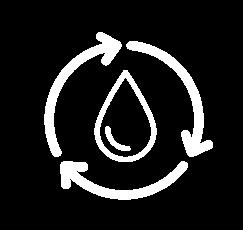
Healthy water for Aotearoa New Zealand is at the heart of what we do.
How we manage our water over the next 25 years will shape the future liveability of Aotearoa New Zealand for generations to come. We need to recognise and support transformational changes to the technologies, practices, institutions and people delivering water services.
That’s why Transformation 2050 is at the centre of our strategic pillars. Building on our current strengths and with a clear vision of the future we can use opportunities to set a course that will ensure physical, environmental, social, and financial resilience in water.
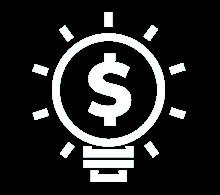
Productive, progressive, inclusive and sustainable climate-resilient procurement and delivery.
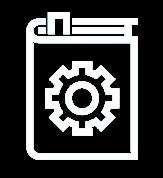
Planning and standards:
Co-ordinated and consistent national policies facilitate locally led service delivery.
Towards 2050: Transformation vision for the water sector is available on our website waternz.org.nz/transformation
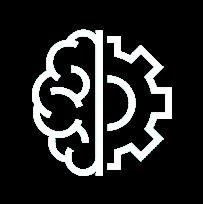
Workforce & education:
Lifting sector capability and capacity.
There are seven themes across Transformation 2050 – See more details on these in other sections of this report.
Water as a taonga:
The health of water is put first, and its management informed by indigenous understanding.
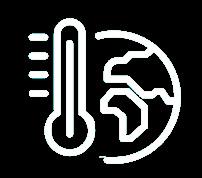
Environment and climate:
Healthy waters sustain ecosystems, enrich environments, and underpin community and business wellbeing.
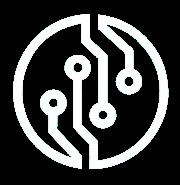
Digitally enabled:
Trusted data and digital analytics enhance customer value.

People and community:
Communities are active participants in water management with safe, equitable and affordable water services for all.
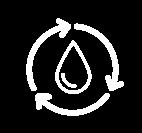

Water as a taonga:
The health of water is put first, and its management informed by indigenous understanding.
Water Journal
Stormwater Conference 2025
Water New Zealand Conference & Expo 2024

Workforce
Advice and advocacy
Cultural Significance and Importance of Wai – three training modules throughout the year
Te Mana o te Wai and Māngai Wai Māori online courses
Staff competency sessions in Te Ao Māori
Workforce & education:
Lifting sector capability and capacity.

Smart buyer: Productive, progressive, inclusive and sustainable climate-resilient procurement and delivery.
Events
Relationships
Supported students water monitoring – in partnership with Māori Science and Design Fair Te Tūkohu Ngāwhā Mātauranga Maori
Imagining high tech water cities school writing prize
Aotea College Stormwater week
Provided drinking water, wastewater and stormwater teaching resource guides to support in class learning
“Te Rerenga Wai, Te Rerenga Kōrero –Flowing Conversations,” poster
Water New Zealand karakia for members
Rauemi Te Ao Māori resources on website
Principles of the Treaty of Waitangi Bill submission
Online workshop on Valuing Water Community of Practice
585 enrolments in our digital training courses
Videos for career fairs
Supported a pilot seeking to establish a master’s degree in drinking and wastewater treatment
Contributed to Auckland University public health course on Food and Waterbourne Disease
Mentoring programme for younger members
Contributed input to Te Pūkenga and the Workforce Development Council changes
Featured water in the Civil Contractors career options roadmap
Water New Zealand scholarships
Water research action plan
Options for future work-based learning submission
Webinar From abstract to outstanding paper
LGNZ workshop: “Water: the things you want to know and the questions you should be asking”
CIWEM membership web series
Development of Roadmap for Water Metering
New Zealand Pressure Pipe Inspection Manual
Impact of Pressure Management on Pipe Burst Rates technical document
Pulse Survey on Business Confidence
Developing an enduring National Infrastructure Plan Submission
Webinar on economic regulation –intros, tips from practitioners
Webinar on economic regulation water services – information disclosure
Webinar on valuing the benefits of water conservation
Water Directory

Planning and standards:
Co-ordinated and consistent national policies facilitate locally led service delivery.

Digitally enabled:
Trusted data and digital analytics enhance customer value.

People and community:
Communities are active participants in water management with safe, equitable and affordable water services for all.

Environment and climate:
Healthy waters sustain ecosystems, enrich environments, and underpin community and business wellbeing.
Integrating Climate Risk into Water Service Delivery Plans Guidance
Drinking Water Sampling Data Guidelines
Making it easier to build granny flats consultation Published Asset Data Standards
Water Services Authority – Taumata Arowai levy for 2025-2028 submission
Commerce Commission levy for the economic regulation of water services submission
Resource Management (Consenting and Other System Changes) Amendment Bill Submission
Local Government (Water Services) Bill submission
Proposed Wastewater Environmental Performance Standards submission
NEMA future emergency management submission
Economic Regulation of Water Services – Information Disclosure submission
Public Works (critical infrastructure) Bill submission
Introduction to the Commerce Commission webinar
Drinking Water Assurance Rules for very small, small and medium supplies webinar
Modelling Symposium
Webinar on data to action: Arcadis Insights on how to build a stormwater flood resilience programme
School Water Supplies Digital Badge Emerging Contaminants Digital Badge
Welcome to Water learning course for local councillors
Funded House of Science water resource kits to 17,000 young learners
Webinar on insights into the performance of the water services sector
Webinar on addressing antimicrobial resistance in wastewater systems and freshwater monitoring
Webinar presenting research into Aotearoa New Zealand’s waterborne illness outbreaks
Web resources for councillors, local government CEOs and directors
Getting started in measurement of wastewater process greenhouse gas emissions – resource
Navigating climate challenges – case studies in water sector adaptationresource
Guidelines for Beneficial Use of Biosolids on Land – technical resource
New Zealand’s Second Emissions Reduction Plan submission
MfE Waste legislation amendments submission
Webinar on how the UK will achieve zero network leakage in a sustainable way by 2050
Webinar on considerations for developing a stormwater credit programme
Tāwara o te Wai podcast –Incorporating Indigenous Knowledge in Water Industry Projects to improve environmental outcomes
4. Public Engagement and Equity – The public often have low awareness of wastewater management, however the ability to fund services relies on their input. On top of this, the public have an important role in their management of services (for example, not flushing foreign objects down the sewer). This workstream has reviewed information available via council websites. We are compiling exemplars to share with water suppliers to support them in making good information available to their communities.
Committee members; Dave Neru, Andy Gaul, Andrew Springer, Carlos Campos, Aaron Green, Chris French, Azam Khan, Chris Kinley, Jan Theron, Les Collins, Gavin Sole, Louis Ortenzio, Sarah Sunich, David Romilly, John Crawford, Emma Brand, Andrew Deutschle.
The Water Efficiency and Conservation Action Network’s purpose is to enable collaboration and knowledge sharing across the New Zealand water industry and develop tools and practices for improving water use and efficiency. However, our remit goes much further than simply identifying practices that use water wisely. We also seek to support a culture of valuing water use, and help to ensure that within our networks water loss is efficiently managed efficiently and promoted through integrated water resource planning. We want water efficiency and conservation to be level pegging with new water supply.
Valuing water
During 2024/25 year we hosted two “Valuing Water Community of Practice” events, aiming to create a network of professionals involved in supporting their communities to become more water efficient. Our first event, “Making the case for water literacy,” explored how to convince decision makers on the benefits of campaigns that build water literacy amongst customers and the community. The second event explored the development of key messaging for different contexts within Aotearoa New Zealand – local, regional and national.
Knowing that our young people are the key to future change, we pushed into educational resources at our conference workshop, Teaching positive water user culture and inspiring the next generation of water industry leaders. Partnering with providers of water education across Aotearoa New Zealand, “We brought conference delegates together,” with educators from:
• Aqualibrium Education
• The Hamilton City Council, Waikato District Council, Waipā District Council Smart Water Programme
• The Tauranga City Council Waterline
• Mountains to Sea Conservation Trust
• Watercare Services Limited education programme
• Wonder Project
Since 1997, network leakage in the UK has been reduced by 40 per cent, with companies pledging to reduce leakage by a further 16 percent by 2025. With around a fifth of potable water in Aotearoa lost to network leakage, there is a need to look at how we can do things differently. We hosted a webinar exploring lessons from the UK with Jeremy Heath, the lead for the UKWIR (UK Water Industry Research Ltd) leakage research programme.
We also drew lessons from our Australian counterparts, sharing resources from the New South Wales Government, which has recently released a set of bespoke cost benefit analysis guidelines for water conservation measures. Links to these recordings can be found at the Water New Zealand Resource Hub.
In collaboration with the University of Auckland, Dr Colin Whittaker, and master’s student Rory Hammond, we are sponsoring a master’s project to review New Zealand’s residential water demand. We obtained funding for this project from the Water Services Managers Group, and are now bringing in data gathered from water suppliers with existing smart meters to inform the research. Outputs of the project will provide more accurate end-use patterns, peaking factors, and minimum night flows, to better understand residential demand.
We also put in a bid for the BRANZ Building Research Levy to better understand how existing appliance stock contributes to water use, and where opportunities might exist with further focus. While our bid wasn’t successful, we built new relationships.
Committee members; Julian Fyfe, Bruce Franks, Christine McCormack, Michelle Templeton, Dan Johnson, Priya Thurai, Chris Miller, Evan Atkinson, Megan Hamilton, Heinz Jacobs, Eric Skowron, Roger Adlam, Maryam Moridnejad, Komal Devi, Olivia Fogg, Jivir Viyakesparan, Julie Clark, Renee Coutts.

• Tāmaki Makaurau Auckland: Urshula Johnson
• Te Whanganui-a-Tara Wellington: Lauren Carter
• Ōtautahi Christchurch: Bradley Jervis
The Young Water Professionals (YWP) group continues to provide opportunities for networking and professional development across the three regional hubs: Tāmaki Makaurau Auckland, Te Whanganui-a-Tara Wellington, Ōtautahi Christchurch. The 2024/25 period featured a diverse calendar of site visits, panel discussions, collaborative events, and networking functions aimed at fostering growth and connection for emerging professionals in the water sector.
Key events were:
November 2024
• Addington Brook Site Walkover (Ōtautahi Christchurch):
A stream walkover led by Mark Groves and hosted by WSP gave YWPs the opportunity to explore the Addington Brook environment and discuss waterway health, urban catchments, and restoration work in Christchurch.
December 2024
• Stream Walk with Stu Farrant (Te Whanganui-a-Tara Wellington):
A guided walk sponsored by Morphum and Watersmart, giving attendees an opportunity to learn about integrated stormwater management in Te Whanganui-a-Tara Wellington.
February 2025
• Breakfast Networking at BECA (Ōtautahi Christchurch):
A breakfast networking session hosted at BECA.
May 2025
• National YWP Networking Event (Stantec Christchurch, Wellington, Auckland):
Hosted at Stantec and led by Gillian Blythe, this nationwide, multi-site event served as both a networking and information-sharing platform, bringing together young professionals from across the country, with participation from regional groups and other SIGs, informing YWPs about their work.
• Speed Networking at Southern Cross Bar (Te Whanganui-a-Tara Wellington):
Held on 29 May and sponsored by Cuttriss, this event offered young professionals a chance to rapidly expand their networks through short conversations in a structured format.
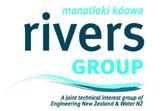
Formed by Engineering New Zealand and Water New Zealand in 2009, the Rivers Group is a technical forum for members from both organisations with an interest in the operational and environmental management of catchments and river systems.
The group is managed by a committee that produces a newsletter, runs field trips and regional events and holds an annual conference.
Water New Zealand sponsored and attended the 2024 Rivers Conference in Napier, which focused on kaitiakitanga of our awa. Site visits were held alongside the awa of the Heretaunga Plains, in collaboration with Ngāti Kahungunu. Delegates heard local iwi aspirations and how to articulate, design and deliver mātauranga Māori in river management.
With the Rivers Group, Water New Zealand sponsors the House of Science resources (see more under Workforce).
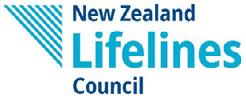
Water is one of Aotearoa New Zealand’s four lifeline utilities sectors under the Civil Defence Emergency Management Act 2002. Water New Zealand has long been involved with the New Zealand Lifelines Council representing the water sector.
Nicci gave a presentation at the 2024 Lifeline Utilities Forum, How did we get here?, covering the water sector, its challenges, Water New Zealand’s involvement and what we think needs to happen next in terms of emergency management.
Based on lessons learnt from wet weather events, the technical team is progressing the following:
• Building awareness of the Sector Coordinating Entity (SCE) within the water sector.
• Preparing a template water services situation report.
• Compiling records of resources and equipment.
• Outlining possible structure, roles and responsibilities of the SCE.
Our many events provide opportunities for members and the wider sector to connect, build networks, share knowledge, and collaborate across the motu.
From conferences and regional meetings to special interest group events, online and in person, our programme provides handson workshops and supports professional development.
We honour and incorporate appropriate tikanga at all our events, ensuring respectful and inclusive engagement. Innovation is front and centre in our conference exhibitions, where suppliers and clients showcase and share the latest advancements.
Underpinning all of this is our commitment to reinforcing the steps needed to deliver on Transformation 2050 – our vision for a sustainable, resilient and healthy water future.
Some 1700 delegates, presenters and exhibitors joined us for the conference and more than 900 joined us at the Downer Gala Dinner.
With more than 100 keynote, thought leadership and technical presentations, along with workshops, the pre-conference Enabling Local Water to be Done Well symposium, the Innovation Forum and some fascinating expo standards, there was plenty of interest for everyone.
In a post-conference survey, 95 percent of respondents said it had been a good use of their time and 95 percent ranked the expo stands as either excellent or good.
Weaving science with indigenous knowledge – water as a taonga – Auckland University Associate Professor of Māori Studies Dan Hikuroa built on the final work of the Watercare Environmental Advisory Group’s exploration around water and how the group’s thinking was freed up once they started to view water as a taonga. Dan spoke of how this approach could provide a basis to reframe our perspective around our relationship with water.
Unrelenting message of hope and collaboration – Waikato River Authority chief executive Antoine Coffin asked the question: Do we do what we’ve always done and expect a different outcome, or do we choose to act in a way that creates space for others to join us, builds a legacy for future generations and is relentlessly collaborative? He shared the organisation’s mission and the immense challenges of restoring and safeguarding the Waikato and Waipa rivers.
Hitchhiker’s guide to resilience – To know where we are going, we acknowledge where we are coming from. This was how opening keynote speaker Waikato-Tainui chief executive Donna Flavell began her conference presentation.
In what she called a hitchhiker’s guide to resilience, Donna provided a snapshot of the turbulent history of Waikato land confiscation in 1865 and the many attempts at redress through to 1995 when Tainui became the first iwi to settle under the government’s billion-dollar fiscal envelope deal.

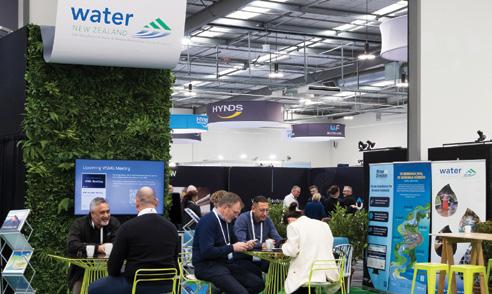

The more than 500 delegates at this year’s Stormwater Conference & Expo in Rotorua were spoilt for choice. Keynote and technical presentations ranged from future-focused thinking and wetland restoration to climate change resilience. There were more than 50 expo stands showcasing the latest developments in innovative solutions.
Sessions were held on collaborating with iwi over restoration of wetlands and improving water quality as well as partnering with mana whenua in stormwater management.
A short film, followed by a panel discussion, showcased how local iwi, landowners and Auckland Council have been working successfully to restore one of the country’s most damaged waterways, the Hōteo River, north of Auckland.
Produced by Water New Zealand and Auckland Council, the film highlighted a collaboration between three iwi (Ngā Maunga Whakahii o Kaipara, Te Uri o Hau and Ngāti Manuhiri), the council and landowners, integrating western science and mātauranga Māori .
The Hōteo Sediment Reduction Project focused on reducing erosion and restoring biodiversity in the Hōteo River catchment as part of an ambitious plan to restore the health of the Kaipara harbour.
The film was shown on the final day of the conference ahead of the keynote address by Local Government Minister Simon Watts.
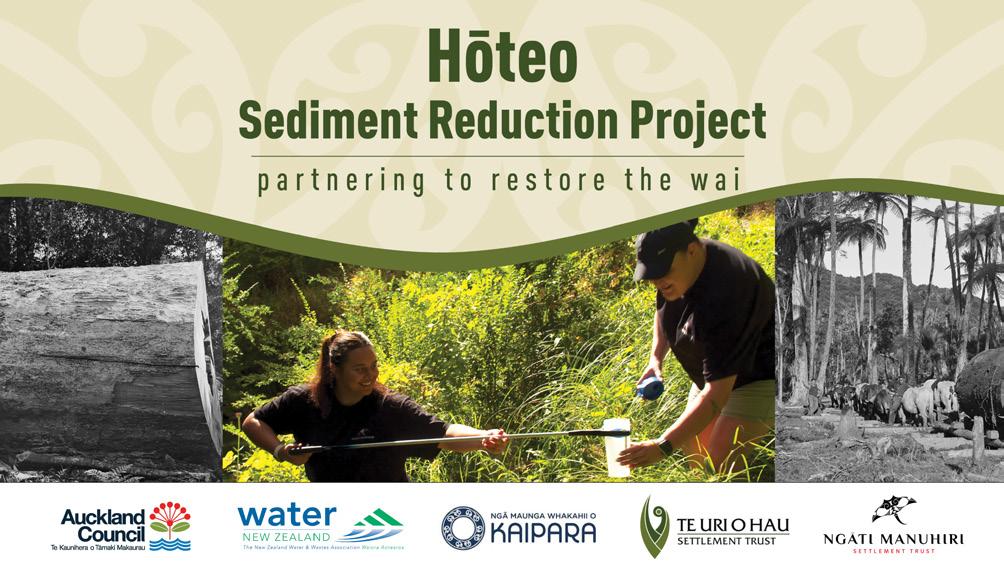
Almost 100 industry professionals, researchers, and practitioners met in Kirikiriroa Hamilton to share knowledge on advancements and challenges in water modelling.
Twenty-two speakers gave presentations on a range of topics, exploring themes such as climate resilience, advancements in modelling technology, integrated catchment management, and the role of artificial intelligence in enhancing predictive modelling capabilities.
Organised by Water New Zealand and the Water Services Authority – Taumata Arowai, this workshop, held in Te Whanganui-a-Tara Wellington in July, examined the risks posed by cyanobacteria for water suppliers and how to mitigate that.
In February we joined with the Water Services Authority – Taumata Arowai for a full day programme delving into the science of drinking water quality.
Presentations and discussions covered contamination, and research innovations including anti-microbial resistance, PFAS contamination, viruses, nitrate exposure and sustainable urban water management.
Professional, high-functioning boards will be vital for the success of the new council-controlled water entities under the Local Water Done Well model.
Water New Zealand has been working with the Institute of Directors to help support the sector and highlight the governance expectations the new entities will need to be equipped to meet.
We took part in organising a breakfast meeting hosted in Whanganui-a-Tara Wellington by KPMG New Zealand. Further events are planned for later in 2025.

Regional events throughout the year allowed members to informally meet new people and share knowledge.
Stormwater meetings were held in Ōtautahi Christchurch, Tāmaki Makaurau Auckland and Whakatū Nelson. We held Modelling SIG meetings at Tāmaki Makaurau Auckland, Tauranga and Te Whanganui-a-Tara Wellington. A joint Modelling Stormwater meeting was held in Kirikiriroa Hamilton.
Gillian attended a regional meeting in Ōtepoti Dunedin in November where she updated members on our three new SIGs, new legislation, regulations and reforms.
Other well attended events included our popular pub quizzes in Tāmaki Makaurau Auckland and Te Whanganui-a-Tara Wellington.
Early this year, we found that our planned venue for the 10th IWA – ASPIRE Conference and Water New Zealand Conference & Expo 2025 would not be ready due to ongoing delays in the completion of the New Zealand International Convention Centre in Tāmaki Makaurau Auckland.
Thanks to sterling work from our event organisers, Avenues Event Management, we were able to move the conference to Ōtautahi Christchurch. Planning for this major conference has been a key focus of the past year and we are looking forward to a successful event in September/October.
Webinars and online events provided important opportunities for us to discuss key issues with our members and the wider sector.
Almost 4,000 people registered for the 38 online events we hosted through the year and more than 2600 joined the webinars and events live.
Key webinars included updates on the Local Water Done Well reform process, including economic regulation and technical advice.
Research into waterborne illnesses and microbial resistance as well as drinking water assurance rules for small and medium suppliers were among some of the technical discussions we covered through the year. The webinars are available on our website.
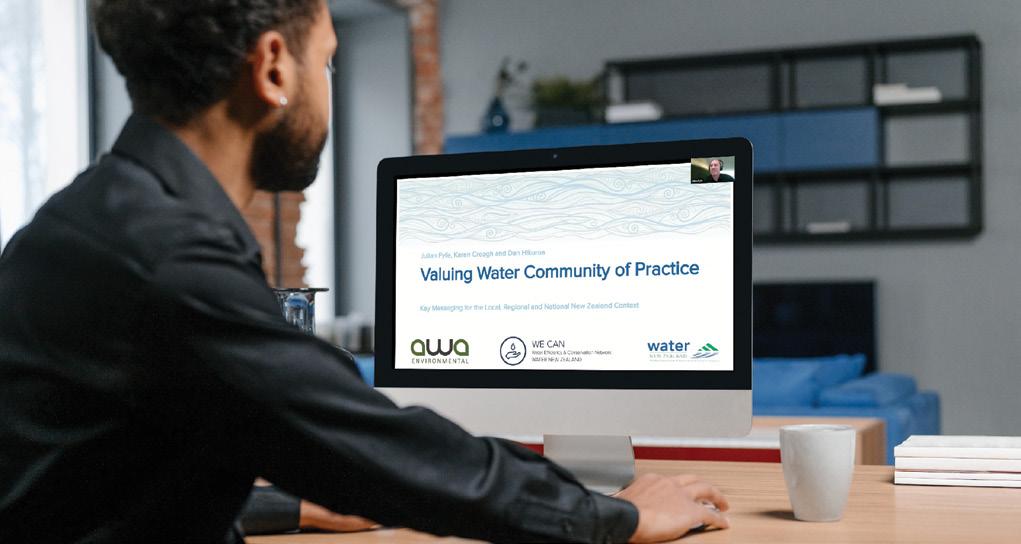
Almost 4,000 members registered for 38 online events held through the year.
The nature of our organisation is to bring people together and this has unavoidable environmental impacts, with both staff and event attendee travel contributing to carbon emissions.
To better understand and address our climate impact, we have been accounting for these emissions. From 2021 to 2024, we undertook emissions assessments of our office greenhouse gases and found travel accounted for 95% of our emissions.
In 2024, with the support of our event partner, Avenues, we turned our attention to our conferences. There are two net zero event accreditation organisations in New Zealand – Ekos and Toitu. Earlier in 2024, we partnered with Ekos to gain net zero event certification for our Stormwater Conference & Expo. For our Water New Zealand Conference & Expo 2024, we chose to partner with Toitu to understand the differences in approach. Together, we delivered a net zero operations event, with conference emissions being offset using cook-stoves in Bangladesh.
Having worked with both accreditation agencies, we found the administrative overheads involved in gaining net zero event operations accreditation outweighed the value we were spending on offsets, roughly fivefold. This did not feel right.
While the Bangladeshi cook-stoves had impact, they felt distant from our operations.
For Stormwater 2025 we undertook a greenhouse gas assessment on our own, using the same approach we had used for the water conference. Figure 1. shows the breakdown of operational emissions for these two events, and how they compare with our own operations.
Without the requirements of a formal certification, we are now looking to target our offset contributions to local waterwayrelated projects. Beyond emissions, we have worked on embedding sustainability into every aspect of our events by:
• Reducing waste by minimising and reusing conference collateral, providing recycling stations, and finding donation and composting options for food waste.
• Responsibly sourced catering providing locally sourced, seasonal and vegetarian options to lower the carbon footprint of meals, and partnering with the venue on reusable crockery, and refillable water stations.
• Supporting lower emissions travel options to and from the conference, including conference buses to reduce individual car travel, and encouraging public transport and ridesharing.
• Providing native trees as delegate gifts and partnering with suppliers who share our commitment to sustainability. Signposting our sustainability values and working with stakeholders is one of our largest opportunities for impact.
The water community you want to be a part of
We are committed to understanding and continuing to meet the needs of our members and the wider water sector. This includes establishing and maintaining effective relationships with the Water Services Manager Group (WSMG), the Water Utilities Association (WUA) and new water service providers.
Our awards and new scholarship programmes are highly valued by the sector, and we engage collaboratively with government ministers and key regulatory and government agencies such as the Water Services Authority – Taumata Arowai, the Commerce Commission, regional councils and the Infrastructure Commission.
It is important for us to be respected by iwi leaders for our role in integrating mātauranga Māori knowledge into water services practices. Additionally, the Water Directory continues to be actively used and well supported by suppliers across the sector.
Each year at our major conferences, we celebrate the dedication, innovation, and leadership shaping Aotearoa New Zealand’s water sector. At the Water New Zealand Conference & Expo 2024, we awarded the Association Medal to Jim Bradley in recognition of his outstanding contribution to the industry. This is the highest honour bestowed by Water New Zealand and is only rarely awarded.
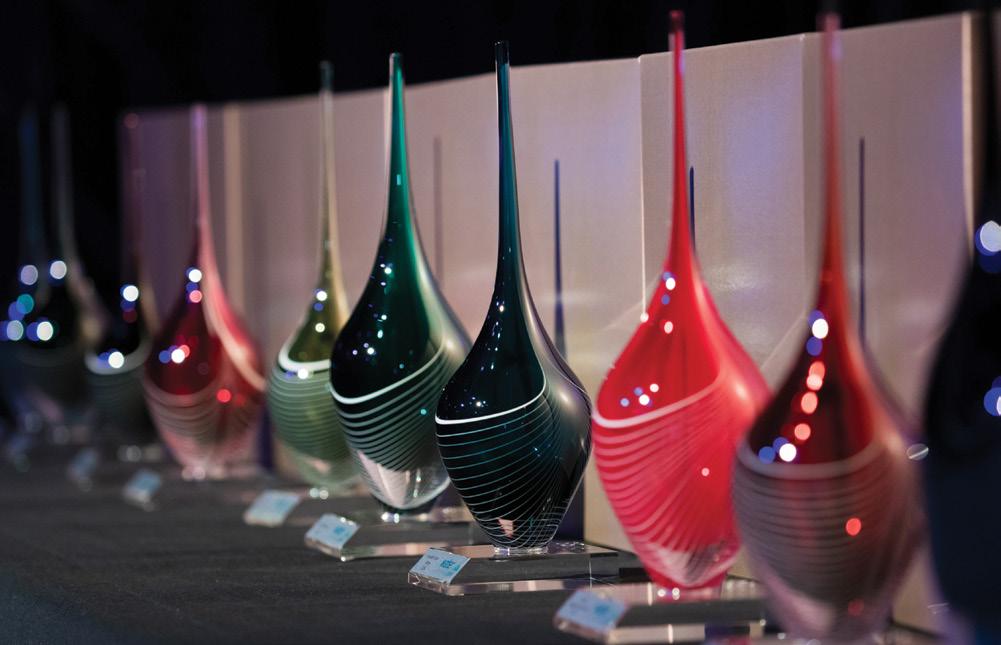
Our members-only forums for executive managers and water service managers provided a key platform to discuss and promote the strategic interest and needs of the water sector under Local Water Done Well and the new regulatory environment.
July 24 – in person
• Infrastructure Commission – Valuing Water – The role of pricing to support sustainable water services
• National Lifelines Council – Infrastructure and Criticality
• Taumata Arowai – Insights into the performance of the water services sector 2022-2023
• Water New Zealand Updates
August 24 – online
• Local Water Done Well legislation updates – Bills 2 & 3 and policy announcements – Water New Zealand
21 November 24 – in person
• Local Government Funding Agency – water services delivery models and financing
• National Infrastructure Agency – Crown Infrastructure Partners
• Commerce Commission – economic regulation
February 25 – online
• Local Government (Water Services) Bill
March 25 – in person
• Department of Internal Affairs – water services delivery plans and consultation with communities
• Commerce Commission – economic regulatory regime under Local Water Done Well
• The Water Services Authority – Taumata Arowai – wastewater environmental performance standards
June 25 – online
• Vocational, education and training reform
• Business confidence survey
• Local Water Done Well update and issues around supply chain certainty
• How should Water New Zealand best support the new Council Controlled Organisations (CCOs)?
Water Services Managers’ Group
Technical documents under way and funded by the Water Services Managers Group (WSMG) include:
• Water Sector Research Roadmap
• Development and Delivery of a Temporary Traffic Management Practice Note for Low-Risk, Low-Impact Work on the National Network
• Unlocking patterns in residential water use: A Data-Driven Approach with Smart Meters (WSMG and University of Auckland co-funded).
Ōtepoti Dunedin, November 2024 (two days), and Tāmaki Makaurau Auckland, April 2025 (two days).
These meetings provided opportunities for water services managers to discuss and share information around key issues including Local Water Done Well reforms, RMA changes and regulatory updates. Site visits were also a popular aspect of these events.
We continued to work with local councils and water utilities, providing support through our membership, meetings and events.
We have been working with the Water Services Authority – Taumata Arowai, Āpōpō and the Commerce Commission to provide resources on our website ahead of the upcoming local authority elections. We want to ensure that councillors and those standing for election have access to clear, accessible, and up-to-date information about the water sector.
Our free new online course, Welcome to Water, is aimed at local government councillors. It was developed in partnership with Taumata Arowai and Āpōpō and focuses on reform, good asset management and project management.
We facilitated a workshop – Water: the things you want to know and the questions you should be asking – at the LGNZ Super Local 2024 Conference, creating an opportunity for attendees to ask about water infrastructure management and legislation affecting LGNZ members.
Our membership within local government – Forty-two councils, including regional, hold corporate membership and 781 people working in local government are members of Water New Zealand, accounting for 23 percent of our membership.
Maintaining trusted relationships with key government ministers and senior advisors is vital to ensuring influence and a “seat at the table” when it comes to policy reform and, in particular, the successful implementation of Local Water Done Well.
Local Government Minister Simon Watts was a keynote speaker at Stormwater Conference & Expo 2025 and nowformer Local Government Minister Simeon Brown addressed the Water New Zealand Conference & Expo 2024 via Zoom.
CEO Gillian Blythe and Water New Zealand President Tim Gibson met with Simeon Brown in November and with Simon Watts in April, and Gillian met with Vocational Education Minister Penny Simmonds.
They, and past-President Lorraine Kendrick, also met with Labour leader Chris Hipkins and Labour’s Local Government spokesperson, Kieran McAnulty.
Through the year, we continued our regular meetings with key government organisations. This included co-hosting webinars and events with the Water Services Regulator – Taumata Arowai and the Commerce Commission.

Flowing conversations
Our actions impact the taiao (environment) and wai (water). When we are mindful, they thrive; when neglected, they suffer. Although wai communicates with us, we often don’t respond. It’s important to engage in thoughtful dialogue to understand and protect this taonga.
What conversations do you have with the waters and people around you?
Which waters do you originate from?
He wai koe?
What type of water are you?
Nā wai koe?
Whose waters are you descended from?
Whose waters will descend from you?
Ko wai koe?
Who are you (which waters define you)?
Mō wai koe?
Which waters will you provide benefit to?

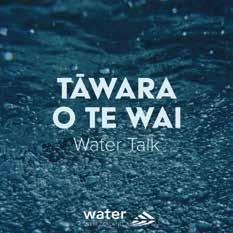
"Whakarongo ki te tāwara o te wai" "Listen to the murmurs of water".
Go to spotify or our website to listen to our latest discussions on current water issues waternz.org.nz

Tāwara o te Wai podcast – incorporating indigenous knowledge in water industry projects
Realising the common ground between mātauranga Māori and western engineering science is key to unlocking great partnerships between mana whenua and councils in the planning of the water environment and services. This podcast focuses on how Heretaunga Hastings District Council has developed a successful co-design approach enabling mana whenua partnership around water projects. The council’s principal advisor – relationships, responsiveness and culture spoke about how the council successfully integrates mātauranga Māori and water engineering at a project level.
For the seventh year running, we produced a water-related poster to celebrate and support Te Wiki o te Reo Māori (Māori Language Week). This year’s theme was “Te Rerenga Wai, Te Rerenga Kōrero – Flowing Conversations,” to illustrate the profound relationship between wai (water) and tāngata (people).
This year we developed a new karakia, created for Water New Zealand members by Water New Zealand Board officer Soltice Morrison. Our karakia reflects our deep connection to wai (water), each other, and the kaupapa that guides our mahi as water professionals. It’s a step toward integrating kaupapa Māori values into the sector and strengthening our community. We hope it brings a sense of connection, purpose, and reflection to your work with wai and with one another.
Te Ao Māori perspectives and mātauranga Māori are relevant to all aspects of water and therefore are important throughout all pillars. As part of our website update, we developed a new resources page, Rauemi – Te ao Māori, which brings together te āo Māori resources from across the organisation. This can be found at waternz.org.nz/rauemi.
We supported Ngai Tahu’s development of a new course promoting safe drinking water and sampling. This resulted in a huge increase in awareness of drinking water risks, particularly on marae, and was part of a wider programme by Ngāi Tahu.
Internally, we continued building on our cultural competency with regular staff sessions focused on implementing te reo Māori me ōna tikanga. As a team, we aspire to boost confidence and knowledge, increase usage in the workplace, and continue to engage in te ao Māori.
In talking to members and the wider sector, we have been aware of the investment hiatus in water. To understand the extent of the downturn, we conducted two surveys on the business state of the water sector – one in November 2024 and a followup in March 2025.
Both surveys set out to gather accurate information and insights from across Aotearoa New Zealand about business confidence, workforce capacity, the status of projects and future contracts, and actions that could be taken to support the sector.
Overall, the surveys indicated a concerning level of pessimism and uncertainty though there was a slight increase in the number of organisations with active vacancies.
The major call from the sector was for more certainty – political certainty, regulatory certainty, certainty of funding. These were identified as the areas most in need of change to make a positive impact on businesses.
We had a lot of interest in our scholarship programme launched this year.
These scholarships are designed to provide members with the opportunity to grow their skills and professional development through educational opportunities and attending conferences. Congratulations to our seven successful applicants. We look forward to hearing about their experiences and learnings through presentations and published articles.
As part of promotion for the upcoming 10th IWA-ASPIRE Conference and Water New Zealand Conference & Expo later this year, Gillian spoke in October at the Borneo International Water and Wastewater Exhibition and Conference. She also spoke at the International Water Association’s World Water Congress in Toronto, Canada, in August.
We continued our close ties across the Tasman with regular discussions with AWA and WSAA.
Water New Zealand members are now able to do online courses through the Australian Water School at a discounted rate due an agreement between us and the training organisation.
The reforms many of our members are facing are similar to those in parts of Australia. With that in mind, we have been keen to learn from their experiences. We were pleased to share information through webinars and to have senior sector leaders attend conferences, including Anna Jackson from Unity Water who was a keynote speaker at the Water New Zealand Conference & Expo 2024.
On the other side of the Tasman, there has also been interest in our experiences of the water reforms and in June, Gillian spoke on an Australian-based Our Water Connection podcast.
She has also maintained close ties with the embassy of the Kingdom of the Netherlands and German Trade, and we met with delegates visiting from the Hubei Provence in China.
We continued our support for WaterAid and in October, Gillian raised $540 to support its Walk for Water campaign to raise funds to help communities in PNG, Cambodia and Timor access clean water.
We also help promote WaterAid Australia’s activities through regular articles in the Water journal.
We continued our ties with CIWEM through our members. This year we co-hosted a three-part webinar on aspects of CIWEM, including how members could join this international body. This was followed by an article in the Water journal.
As part of our commitment to continuous improvement, we conducted our annual membership satisfaction survey.
We are pleased to report a Net Promotor Score (NPS) of 18, up from 16 last year. This increase shows more members are having positive experiences and value what Water New Zealand provides.
While there is still room for improvement, this upward trend indicates that efforts to enhance what we offer is having a positive impact.
In total 11,337 recipients received Pipeline each fortnight, with an average opening rate of 28.7 percent.
Webinars and online events – 38 webinars and online events – see more in Events Tāwara o te Wai Podcasts – eight podcasts recorded with 772 listeners. Topics included Cyclone Gabrielle, economic regulation, cybersecurity, tackling microplastics and integrating mātauranga Māori and indigenous knowledge to shape a sustainable water future.
This glossy publication continues to be an important vehicle for communicating and promoting Water New Zealand to members and the wider sector.
It has maintained strong advertising support despite the economic challenges facing the business sector.
Circulation has grown in line with our membership and the online version was read by more than 2800 readers.



During the year, there were more than 123,000 visits to the Water New Zealand website and more than 430,000 pages were viewed.
Twelve media releases were issued through the year as well as several targeted opinion editorials. An editorial from Belinda on the dangers of chemicals in water was printed in Stuff and the Waikato Times following elevated arsenic levels in the Waikato River.
We have seen a decline in mainstream media coverage due to the parlous state of the mainstream media environment and the ongoing reduction in journalists and content across the media industry.
Like other organisations, we have been putting greater emphasis on social media and talking with key influencers directly and through online content such as webinars.
Our following and engagement on LinkedIn continued to grow through the year, with 13,730 followers –up 18 percent.
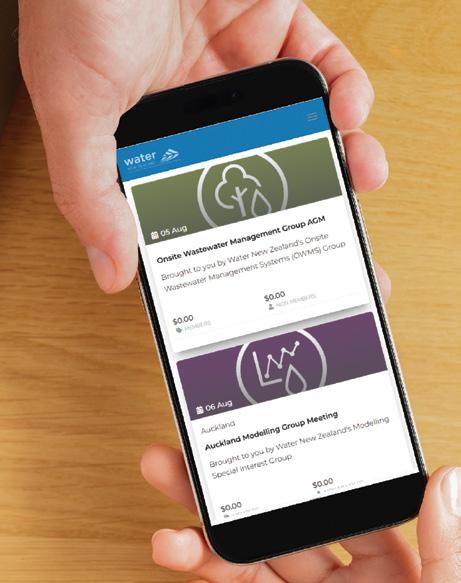
The Water Directory website continues to be a useful resource for the water community with a growing content base of case studies, useful articles, videos and events as well as information about suppliers and their products. We have recently embarked on some marketing activity on Google to widen the pool of users who would benefit from using this time-saving tool.
This year Water New Zealand welcomed three new appointed officers to the board – Soltice Morrison, Suzanne Naylor and Paddy (Padraig) McNamara. They replace Troy Brockbank, Fraser Clark and Shelley Wharton. We acknowledge and thank Troy, Fraser and Shelley for their valued contribution during their time on the board.

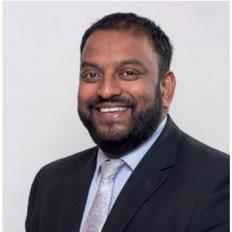
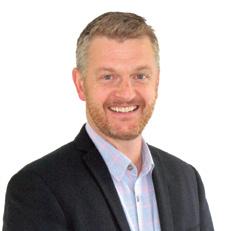
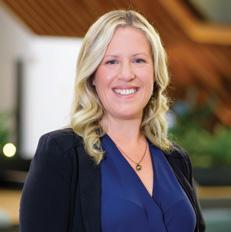
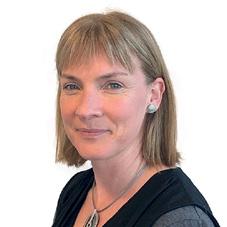
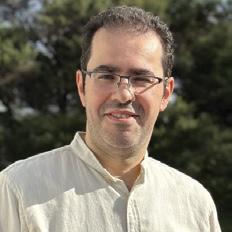
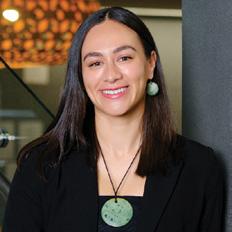
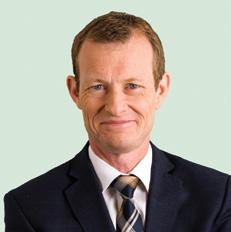
Gillian Blythe – Chief Executive
Belinda Cridge – Technical Lead (Drinking Water Quality & Education)
Caroline Lewin – Executive Assistant & Association Secretary
Debra Harrington – Communications Manager
Debbie Laing – Advertising Manager
Frances Sheriff – Marketing Lead
Katrina Guy – Internal Events & Logistics Co-ordinator
Lesley Smith – Technical Lead (Projects & Sustainability)
Mumtaz Parker – Corporate & Membership Services Manager
Nicci Wood – Technical Lead (Regulatory & Catchments)
Pip Donnelly – Membership Administrator/Office Manager
Sweety Gangreddiwar – Accounts Administrator